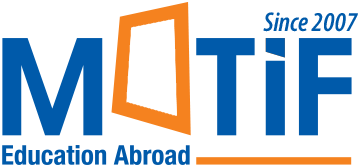Bachelor of Business (Accounting)

- March
- July
- November
- An overall valid academic IELTS 6.0 not less than 6.0 each band
The Bachelor of Business (Accounting) degree (CRICOS Course Code: 109326F) is a three-year full-time degree that uses strategies that enable students to develop problem-solving and decision-making skills relevant, and indeed vital in the business environment as accounting professionals. On completion, graduates acquire disciplinary skills in the ‘finance and budgetary’ sector complemented by extended business and management skills that uniquely equip them to develop careers in business and accounting in the private and public sectors, internationally and nationally.
The degree is comprised of comprised 24 units (subjects) studied over 6 trimesters, 4 units per a trimester session. Each trimester will comprise 13 weeks of face-to-face classes period and one-week end of session exam period. Each trimester will comprise 13 weeks of face-to-face classes, and one-week end of session exam period. Each trimester, therefore, is contained within a 14-week block While there will be three trimesters per year, the third or summer trimester will be optional.
The course is accredited by the CPA, CA ANZ and ACCA. Students will study a core of units covering specialization for CPA/ CA professional requirements.
All students will study a core of 21 units covering specialisation for professional requirements in accounting, finance, law, and the foundations in business. They will also study three elective units focusing on accounting to further enhance their specialisation.
Why Choose Accounting?
- Accounting for the Future and the Future of Accounting: There has never been a more exciting time to earn an accounting qualification. This is because accounting is undergoing a revolution as it seeks to account for new forms of capital as the world shifts from an Industrial to an Information Age. In addition to finances, today’s accounting methods must consider human, intellectual, technological, environmental and other emerging forms of capital.
- One of the ten most popular degrees studied in Australia by both domestic and international students: Accounting is the common language of business both domestically and globally.
- High demand for people with accounting background: The need for finance, taxation, technology (eg FinTech), general business, business analyst, auditing, management; government, and many more.
- Maximum career flexibility across virtually every area of human activity: An accounting degree provides a skill set that enables you to add value to almost every other career path in business or government.
- The opportunity to become a Certified Practicing Accountant or a member of major professional Accounting bodies: The Accounting degree provides you with the opportunity to register as a member of CPA or the Chartered Accountants Australian and New Zealand (CA ANZ) or the Institute of Public Accountants (IPAA) and Chartered Institute of Management Accountants CIMA subject to their rules and regulations
Learning Outcomes
Upon completion, students will:
- have developed a broad and coherent theoretical and technical knowledge with the depth required for practice in business, generally, and in accounting, in particular;
- have well-developed cognitive, technical and communication skills that will enable them to select appropriate methods and technologies in dealing with complex and sometimes unpredictable challenges in the business and accounting environment and be able to design innovative solutions in response;
- be able to use their cognitive and technical skills to analyse and evaluate information to complete a range of activities in business and accounting, and be able to transmit knowledge, skills and ideas to others in the discipline;
- will have the knowledge and skills to demonstrate autonomy and ability to engage in self-directed learning and for independent life-long learning;
- have well-developed judgement and responsibility that enable them to offer specialist advice in their field and to apply the principles of corporate social responsibility and professional ethics; and
- be able to engage professionally, and to communicate both orally and in writing effectively with individuals and organisations, in a manner which is respectful of the needs, values, personalities and capabilities of others.
